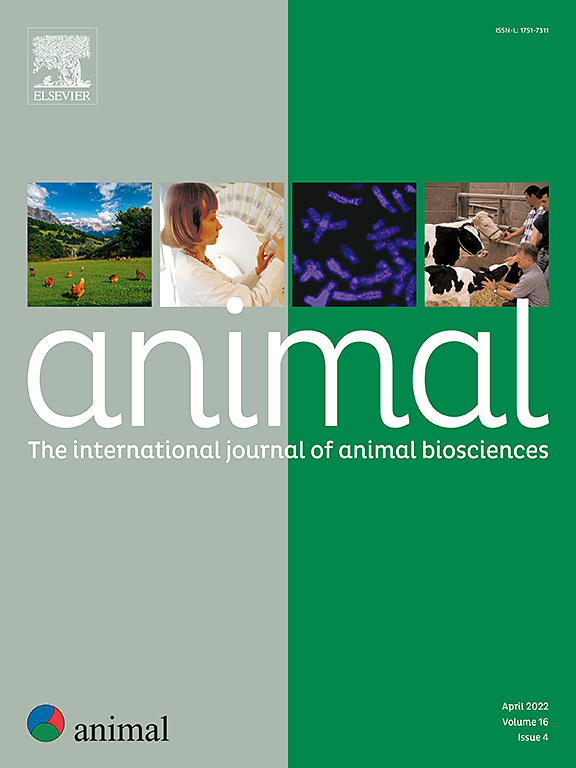Short Communication: True Cost Accounting (TCA) as a transformative approach for livestock agri-food systems
IF 4.2
2区 农林科学
Q1 AGRICULTURE, DAIRY & ANIMAL SCIENCE
引用次数: 0
Abstract
Today, there is extensive debate about the sustainability of the food system. Numerous research and policy initiatives focus on transforming the food system to make it more sustainable. The method of True Cost Accounting (TCA) can reveal positive and negative externalities for natural, social, human, and economic capital in food production and consumption. Insight into and internalisation of these externalities in decision−making can contribute to making food systems more sustainable. This paper illustrates the use of TCA and presents a research agenda for TCA in livestock agri-food systems. TCA is based on environmental and social life-cycle assessments and, as a result, inherits some of their shortcomings. Monetising the impact of externalities is a methodological challenge, further complicated by the practical challenges of data availability. We recommend working towards a harmonised TCA approach with an interdisciplinary team of researchers to assess the true value of livestock agri-food systems.
简短的沟通:真实成本会计(TCA)作为牲畜农业食品系统的变革方法
今天,关于粮食系统的可持续性存在着广泛的争论。许多研究和政策举措的重点是改变粮食系统,使其更具可持续性。真实成本会计(TCA)方法可以揭示食品生产和消费中自然、社会、人力和经济资本的正面和负面外部性。在决策过程中洞察这些外部性并将其内部化,有助于提高粮食系统的可持续性。本文阐述了TCA的使用,并提出了TCA在畜牧业农业食品系统中的研究议程。TCA以环境和社会生命周期评估为基础,因此继承了它们的一些缺点。将外部性的影响货币化是一项方法论上的挑战,数据可用性方面的实际挑战使其进一步复杂化。我们建议与一个跨学科的研究小组合作,制定一种统一的TCA方法,以评估牲畜农业食品系统的真正价值。
本文章由计算机程序翻译,如有差异,请以英文原文为准。
求助全文
约1分钟内获得全文
求助全文
来源期刊

Animal
农林科学-奶制品与动物科学
CiteScore
7.50
自引率
2.80%
发文量
246
审稿时长
3 months
期刊介绍:
Editorial board
animal attracts the best research in animal biology and animal systems from across the spectrum of the agricultural, biomedical, and environmental sciences. It is the central element in an exciting collaboration between the British Society of Animal Science (BSAS), Institut National de la Recherche Agronomique (INRA) and the European Federation of Animal Science (EAAP) and represents a merging of three scientific journals: Animal Science; Animal Research; Reproduction, Nutrition, Development. animal publishes original cutting-edge research, ''hot'' topics and horizon-scanning reviews on animal-related aspects of the life sciences at the molecular, cellular, organ, whole animal and production system levels. The main subject areas include: breeding and genetics; nutrition; physiology and functional biology of systems; behaviour, health and welfare; farming systems, environmental impact and climate change; product quality, human health and well-being. Animal models and papers dealing with the integration of research between these topics and their impact on the environment and people are particularly welcome.
 求助内容:
求助内容: 应助结果提醒方式:
应助结果提醒方式:


